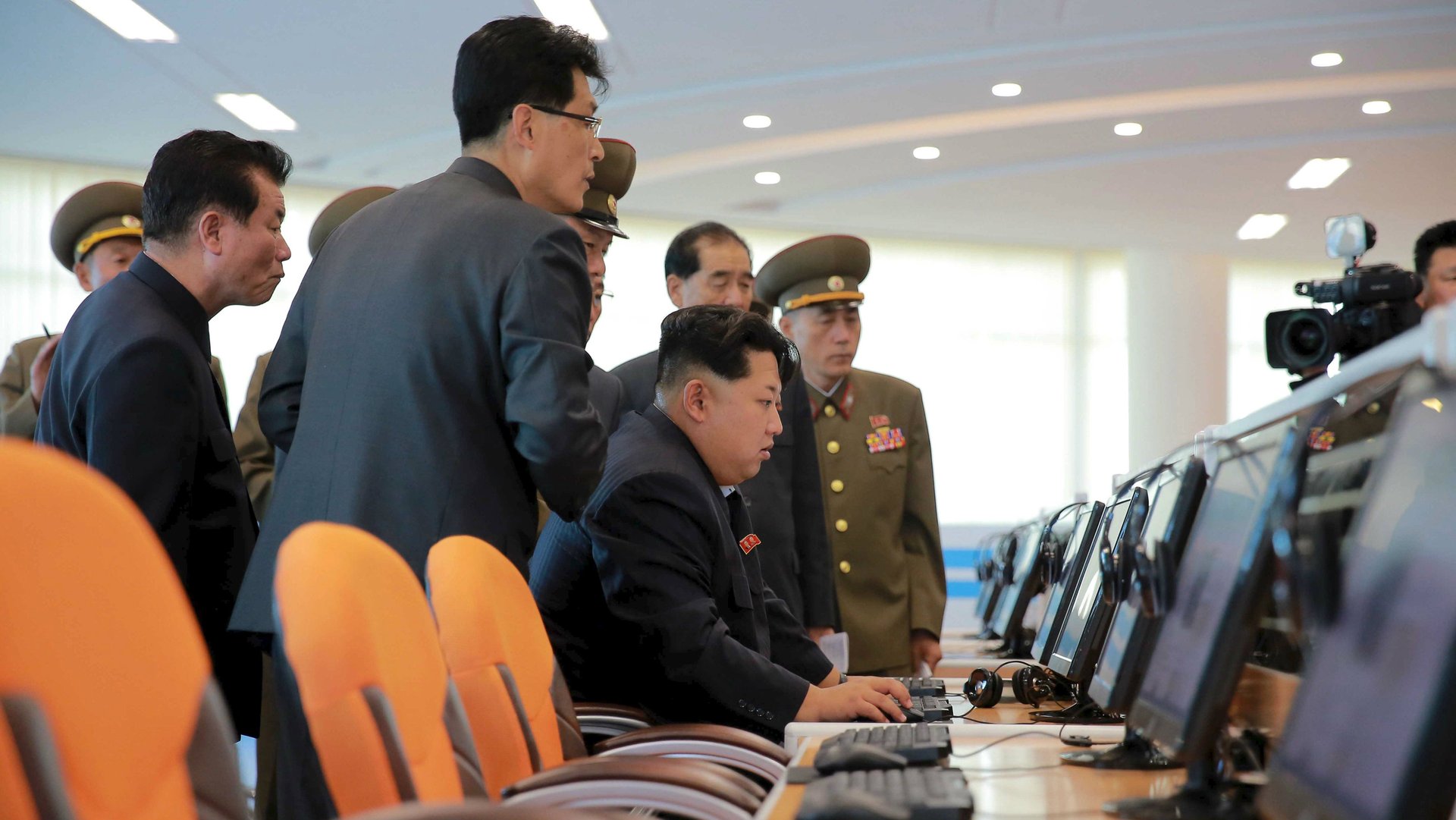North Korea’s hackers—many living abroad—have nabbed it $650 million
North Korea has gradually become a hacking superpower, and has earned a pretty penny in the process.


North Korea has gradually become a hacking superpower, and has earned a pretty penny in the process.
Agents acting on behalf of the ruling regime have stolen about $650 million through cyberattacks, according to research from Simon Choi, a consultant to South Korea’s CIA-esque National Intelligence Service. And that’s “just a portion” of their overall activity, he says, speaking to Patrick Winn of Public Radio International.
In a lengthy feature, Winn explains how the North Korean government has rapidly become a world leader in hacking, despite its impoverishment and economic isolation. Not long after leader Kim Jong-un took over in 2011, he reformed the Reconnaissance General Bureau—North Korea’s answer to the CIA, believed to be only a few years old then—to prioritize cyberwarfare. Top engineers at the country’s best universities get funneled up a professional and political ladder at the agency, with the most skilled going abroad. In countries like India and Malaysia, they pose as traders or importers while carrying out cyberattacks against financial institutions in all parts of the world, according to PRI.
Speaking with one former North Korean hacker who defected to the south, Winn writes that the state will often support the families of these hackers, moving them from the countryside to the capital of Pyongyang, where they can “enjoy great luxuries: hot water around the clock, regular electricity, rare food items—such as bananas—that are beyond the basic soldier’s ration allotment.”
This helps reduce the likelihood that a North Korean hacker operating overseas, with unfettered access to the internet, will defect—his family’s financial stability depends on him staying loyal to the regime.
Since 2011, hackers from North Korea have been implicated in dozens of heists, including a theft of $81 million (paywall) from from Bangladesh’s central bank via the Federal Reserve Bank. They are also suspected to have targeted a number of cryptocurrency exchanges in Japan and South Korea. Increasingly, along with North Korea’s nuclear weapons prowess, these cyberattacks constitute a threat to international order.
Few can predict the outcome of president Donald Trump’s unprecedented June meeting in Singapore with Kim to talk about denuclearization and normalization of relations. Pyongyang’s erratic messaging suggest it might not go smoothly—if it isn’t postponed, that is. If it indeed goes sour, the world won’t just have to worry about its nukes—more cyberattacks are likely to be the more imminent threat.